Hinault criticised by former peers for his Lance Armstrong comments
Robert Millar, Jaksche and former UCI President McQuaid talk
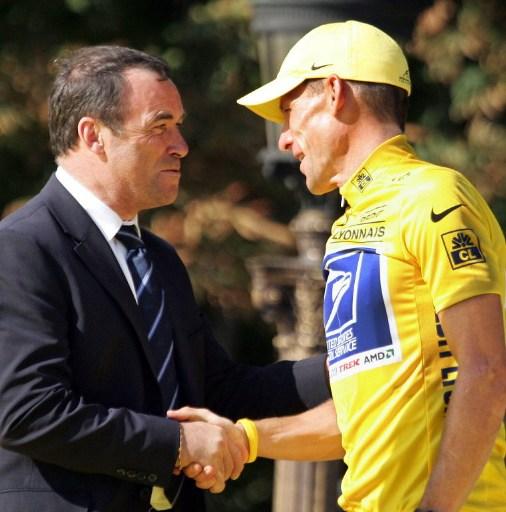
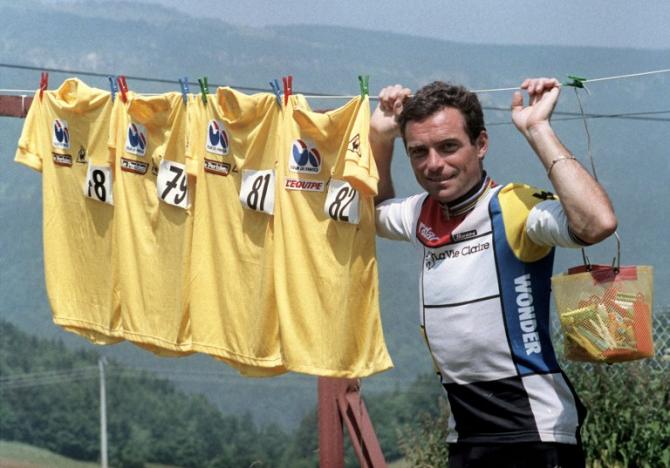
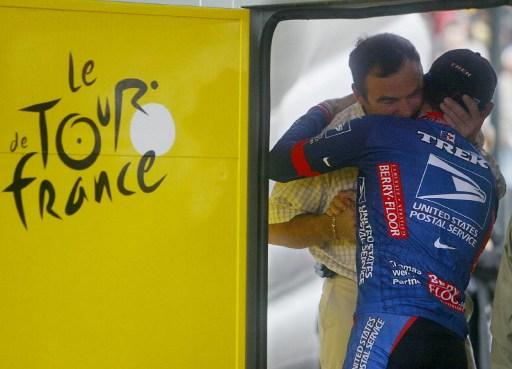
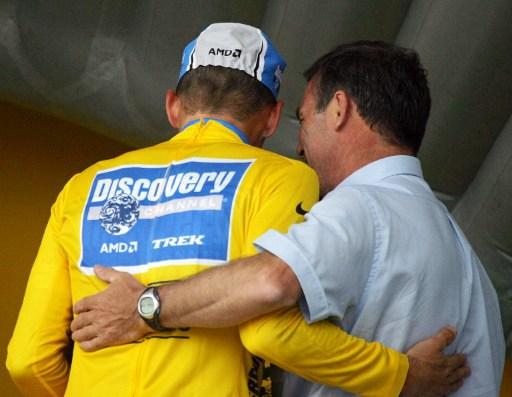
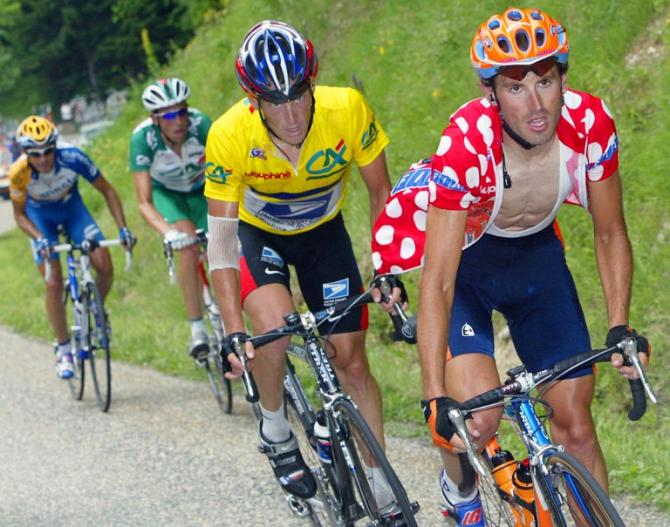
Bernard Hinault has been criticised for what others have called "blinkered" and "inappropriate" comments relating to doping in cycling and Lance Armstrong. Hinault, a five-time Tour de France winner, made the comments in an interview with AFP earlier this week.
Hinault, 60, pointed out that cycling has often been placed under a great media spotlight in relation to doping. However, when asked about Lance Armstrong, Hinault said, "If I met him today I would not talk to him. I would not even say hello."
Armstrong is serving a life-time ban for doping and has seen his seven Tour wins removed from the record books. Hinault has been critical of the American in the past. Last year Armstrong stated that during his career it was impossible to win the Tour without doping. Le Blaireau responded, telling the Daily Telegraph that "the punishments for offenders must be harder. Offenders like Armstrong should have to give back all the money they earned. Then they can sit back and think what they did."
Cyclingnews contacted Robert Millar for an opinion on the Frenchman's comments regarding Armstrong, and the latter's role in the frequently asked doping questions.
"I fear the blinkers of old age have appeared on the pony pulling Hinault's cart," Millar said to Cyclingnews.
"Everyone likes to remember the nice parts but looking back it wasn't all the good old days in black and white with cheeky chappies just racing for fun."
"Let’s just work back from the 1999 Tour and the beginning of the American's domination, shall we. There's the whole Italian team renaissance fuelled by growth hormone and EPO with the help from the Eastern Bloc doctors, not that the Spanish were left behind either. Then you can look at Ariostea, Gewiss, and Festina as examples, and Hinault believes it's Armstrong who is to blame?
The latest race content, interviews, features, reviews and expert buying guides, direct to your inbox!
"Maybe it's easier to ignore the scandals at PDM or the widespread use of cortisone in the 70s and 80s than accept the situation which existed when he was competing. Laurent Fignon's autobiography sets out the situation quite clearly, the culture of cheating existed and apparently in teams where Hinault worked, if we are to believe the confessions of retired riders. When you read that national federations were willing to blood dope their athletes at the Olympics and the never ending stream of positives for amphetamines, ephedrine and cortisone based medications before, during and after the Hinault era, then you realise that Armstrong didn't invent the doping problem. The problem was institutional."
McQuaid: To single out Armstrong is unfair
Former UCI President Pat McQuaid - who had said that Armstrong 'had no place in cycling' after USADA banned the rider for life - agreed with Hinault's sentiment surrounding the focus on cycling but added that even if the Frenchman was asked about Armstrong, it was wrong to single him out in such a manner. Like Millar, McQuaid pointed to the fact that sport has had a long and intertwined relationship with cheating.
"I completely agree with Hinault in that cycling is no more rotten than other sports but he is very much aware that doping in cycling was widespread long before Lance Armstrong came into the sport, so to single him out as he does is unfair," McQuaid told Cyclingnews.
"There is enough evidence that doping was prevalent in cycling since the early Tour de Frances."
Jaksche says Hinault's comments are hypocritcal
To say that Jörg Jaksche has had his issues with McQuaid’s former governance of the UCI would be an understatement but he agreed with the Irishman’s general comments over this issue.
"I thought it was a little hypocritical of Hinault to say what he did. It’s a little unfair for him to insinuate that his time was clean and that my time, the Lance Armstrong time, was dirty. This isn't about one rider or one generation, so his comments aren't the appropriate way of dealing with the problem. A person in his position shouldn't make it personal because it just comes across as senseless," Jaksche told Cyclingnews.
"It's not that I want to include everyone but I think after what we saw with Festina, and what we saw with Operación Puerto, you could get a general sense of what was going on in cycling. To give you an idea of the culture I had a sponsor once who didn't ask questions about doping and instead of that they gave us training on how to avoid doping questions in the press. They didn't once ask if the rumours of doping were true.
"What I'm trying to say is that you can’' be a sponsor, a body like ASO or even Hinault and see all these atomic bombs drop around you and then pretend like you didn't know that Lance and others weren't doping. It was crystal clear."
Hinault has always stated that his career and its successes weren't based on doping and that he was clean during his professional career. He is now an ambassador for ASO, the parent company for the Tour de France and very much seen as a pillar of respectability within French cycling and the sport in general. He's the last French winner of the Tour de France and widely regarded as one of its patrons.
"I think Hinault doesn't want to talk about the cycling he was involved with and just remember that he won five Tours," Jaksche said. "He's standing there on the podium for the ASO and he wants to glorify himself, and that's human behaviour, whether he's a sinner or not."
Jaksche came into the sport long after Hinault's retirement in the 1986. He doped for large parts of his career and after his sanction agreed to a full confession. He's recently cooperated with the UCI's independent commission into doping within the sport, and although he has no first-hand knowledge of the doping culture that came before him, he has talked to former professionals who raced during the 1970s and 1980s.
"My perception might be wrong but I don't think bad people just arrived in cycling in the 1990s with EPO in their hands. I've spoken to an ex-German pro who was really successful in the 70s and 80s and he's told me that their generation were taking cortisone and things like that but he said they never did EPO. Well, I'm sure but that's because EPO wasn't around back then and if you took other drugs, well I'm sorry, it's still doping. That's nothing personal to Hinault because I don't know his story but his comments were inappropriate. What he said helps no one.
"And as for McQuaid I think he's right. I've had problems with him in the past over my own case but I think that as soon as people are out of the sport they start to have another view. Pat, step by step is probably changing his views."
Daniel Benson was the Editor in Chief at Cyclingnews.com between 2008 and 2022. Based in the UK, he joined the Cyclingnews team in 2008 as the site's first UK-based Managing Editor. In that time, he reported on over a dozen editions of the Tour de France, several World Championships, the Tour Down Under, Spring Classics, and the London 2012 Olympic Games. With the help of the excellent editorial team, he ran the coverage on Cyclingnews and has interviewed leading figures in the sport including UCI Presidents and Tour de France winners.
